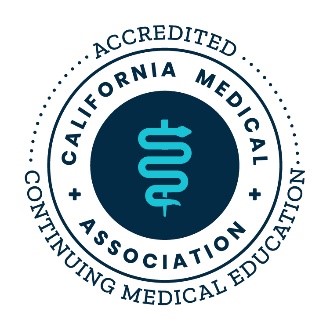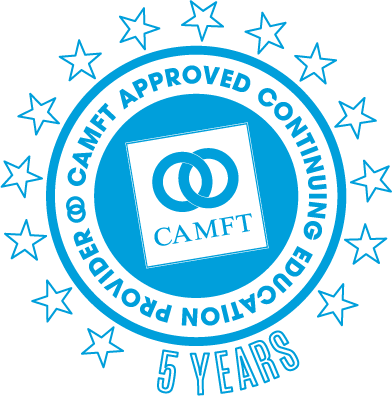
7 - 9:15PM/PT
Section 1: Course Introduction
Class Date: September 9, 2024
Course Coordinators: Paul Watsky, Carolyn Bray, PhD.
Description: The Course Coordinators will introduce the course, present a course overview, invite participant introductions which will be recorded to be viewed by course instructors, discuss participant and instructor expectations, and answer questions.
Section 2: The History of Jungian Oriented Psychotherapy
Date: September 16, 2024
Instructor: John Beebe, MD
Description: Early experiences in Jung’s career shaped his understanding of the defensive complexes that develop in all of us in response to trauma. In his middle years, however, Jung began to move beyond complexes to complexity itself as what his patients would have to engage in themselves to achieve transformation. We will trace this history, which models how multiple perspectives are needed to foster integration.
Section 3: The Unconscious as Participant: Messages and Their Media
Class Dates: September 23, 30, 2024
Instructor: Paul Watsky, PhD, ABPP
Description: This section begins with a brief overview of the role psychological theory assigns unconscious mental processes, then focuses in on the similarities and disparities between how unconscious effects are represented in Freudian and Jungian schemata, and, finally, what, viewed as communication, unconscious phenomena demand, respectively, from the Jungian analysand and analyst.
Section 4: Theory of Complexes
Class Dates: October 7, 14, 21, 2024
Instructor: Lori Goldrich, Ph.D.
Description: Early in Jung’s career as a psychiatrist, he developed the theory of affect-toned complexes. In working with unconscious material, he later found that the emergence of complexes can both interfere with the process of psychic integration and are natural channels of the potential for transformation, in relationship to self/Self and others. In this section, participants will develop an understanding of the nature and structure of complexes and acquire an increased capacity to work with complexes within the relational matrix of analytical psychotherapy.
Section 5: Ego Development: Ego as a Complex
Class Dates: October 28, November 4, 2024
Instructor: Helen Marlo, Ph.D.
Description: The ego and its development and expression as a complex will be surveyed. As the center of consciousness, the ego’s role and value in development can be misunderstood and even relegated in importance. The ego is intimately related to the Self and individuation and is influenced by innate, developmental, experiential, and relational factors as initially postulated by Jung and Fordham. These factors, and their relevancy to the practice of therapy and analysis, will be explored in this segment.
Section 6: Persona & Shadow
Class Dates: November 11, 18, 2024
Instructor: Katherine Olivetti, LCSW
Description: Jung wrote about the persona as the aspect of psyche that mediates between the individual and society. Often regarded as a false self, in its positive aspects, this psychic entity is necessary and has creative aspects that contribute to individuation. In this class we will look at positive and negative aspects of persona and how they impact clinical situations. Jung defined the shadow as those aspects of the self that cannot be incorporated into the conscious ego identity of the individual. In the class we will consider the various factors that contribute to the formation of the shadow, and how the process of working with shadow aspects of the psyche is related to individuation.
Section 7: Mid-Course Integration
Class Date: December 2, 2024
Course Coordinators: Paul Watsky and Carolyn Bray
Description: This section will focus on participants’ questions about comprehension of concepts, successes and challenges for integrating concepts and approaches into clinical practice, and evaluation of course to date.
Section 8: The Archetypal Psyche
Class Dates: January 6, 13, 27, February 3, 2025
Instructor: Robin Eve Greenberg, MFT
Description:
This section of classes will focus on the archetypal ground of the psyche as the prima material for the individuating personality in the clinical setting. Jung conceived the archetypes as universal patterns embedded in the collective unconscious. The archetypes carry meanings on the wings of symbol and affect. We will consider how to work with archetypal material in the context of the therapeutic relationship, and explore how mythologems, dreams, behaviors, images, synchronicities, complexes, ideas, and the body carry meaningful messages from the archetypal depths in service of the Self and in the process of individuation.
Section 9: Types of Consciousness
Class Dates: February 10, 24, March 3, 10, 2025
Instructors: John Beebe, MD and Dorothy (Dee) Stump, MFT
Description:
In 1934, Jung wrote that the purpose of his work on psychological types was not to sort people into categories but as “a critical apparatus” to “organize the welter [confusion] of empirical material” that comes up when one plumbs the psyche. The psychological types, then, are not types of people, but types of consciousness. In this course, we will learn to differentiate the eight types of consciousness that Jung identified: extraverted sensation, introverted sensation, extraverted intuition, introverted intuition, extraverted thinking, introverted thinking, extraverted feeling, and introverted feeling. We will also explore what Jung meant by the terms rational and irrational as well as extraverted and introverted as qualities of consciousness. Using clips from classic films, clinical vignettes and personal experiences we will practice learning how to recognize the types of consciousness. Finally, we will become familiar with our individual and familial types, and see how the types relate to common archetypal roles that each of us, at one time or another, take up.
Section 10: Approaching the Unconscious: An Analytic Perspective towards the Body and Dreams
Class Dates: March 17, 24, 31, 2025
Instructor: Tina Stromsted, Ph.D, MFT, LPCC, BC-DMT, RSME/T
Description: This section of classes will focus on how our bodies and dreams may be our closest links to the unconscious, expressing the soul’s longing through image, breath, gesture, the rhythm of our step, and the music of our speech. To gain further access to this rich and meaningful material, these three class sessions will engage concepts discussed in Chapters 1 & 2 in The Symbolic Quest by Edward C. Whitmont, together with select readings that engage the themes for each class meeting. Our focus will include dreams, Jung’s Active Imagination, creative arts, and the body in analysis. These methods can be applied to a wide range of populations and clinical settings.
Section 11: Anima and Animus, Recovering the Depths
Class Dates: April 7, 14, 21, 28, 2025
Instructors: Christopher Cunningham, PhD and Lauren Cunningham, LCSW
Description: We will examine the use of the terms anima and animus before Jung, Jung’s conceptions of anima and animus development, post-Jungian expansions and refinements of the concepts.
Section 12: Self, Ego/Self Relationship, and Individuation Process
Class Dates: May 5, 12, 19, June 2, 2025
Instructor: Carolyn H. Bray, PhD.
Description:
This section will focus on Jung’s concept of the Self, and its place in his unique theory of psychological development which spans a lifetime. To gain a therapeutic working knowledge of the Self, we will come to an understanding of the range of Jung’s concept of a psychological journey integrating aspects of the human personality, the ego, and the Self into a relationship of wholeness. We will focus on the critical relationship between the ego and the Self which facilitates the process of individuation, or unification and realized potential of the individual. Through didactic presentations and discussions, experiential observations, and clinical presentations we will explore the dynamic relationship between the ego and the Self as it appears in dreams from clinical settings, in mythology, fantasies, stories from childhood, physical gestures, or other unconscious material.
Section 13: Course Integration and Evaluation
Class Dates: June 9, 2025
Course Coordinators: Carolyn Bray and Paul Watsky
Description:
This closing section of the course will focus on integration of course concepts and applications in clinical practice, discussion of participant’s ongoing clinical development, identification of avenues for further study of and consultation in Analytical Psychology, and course evaluation.
Date: Sep 9, 2024 07:00 PM - Jun 2, 2025 09:15 PM
Fee
CE Hours
Registration closes on Oct 01, 2024 12:00 AM
Activity Type
- Extended Education
Accreditation(s)


Requirements for CE Credit
Speaker(s)/Author(s)
|
Carolyn H. Bray, PhD Brief Bio : is the current president of the C.G. Jung Institute of San Francisco. She is an associate editor of Jung Journal: Culture & Psyche, and maintains a practice in San Francisco and Marin, CA working with adult individuals and couples. Her special interests include a Jungian typological approach to understanding human relationships, Hawaiian mythology and shamanism, and working with individuals who have experienced sexual abuse trauma. |
|
|
Paul Watsky, PhD, ABPP
|
